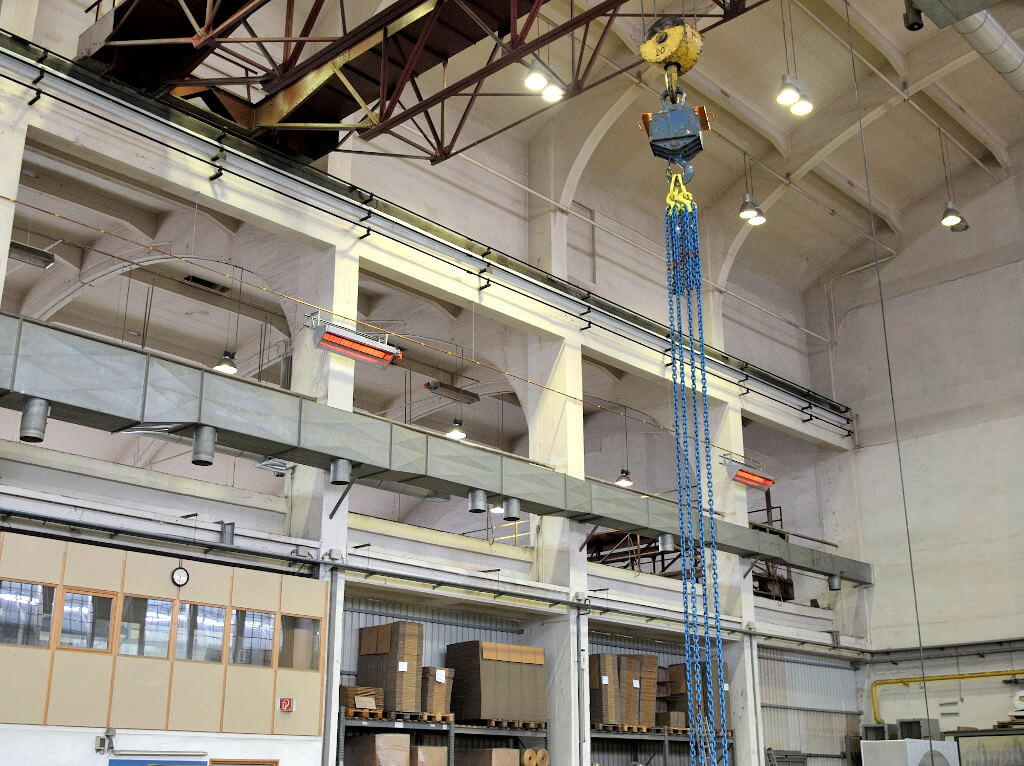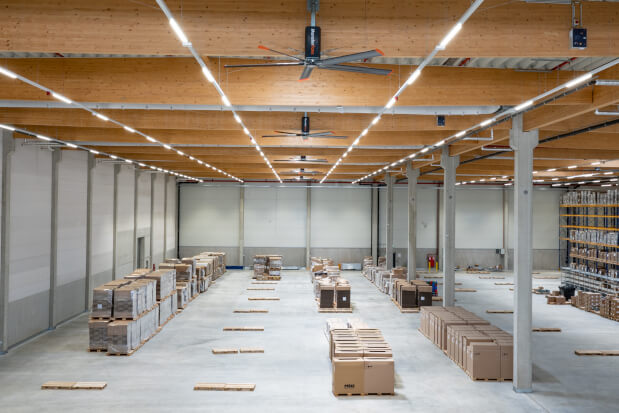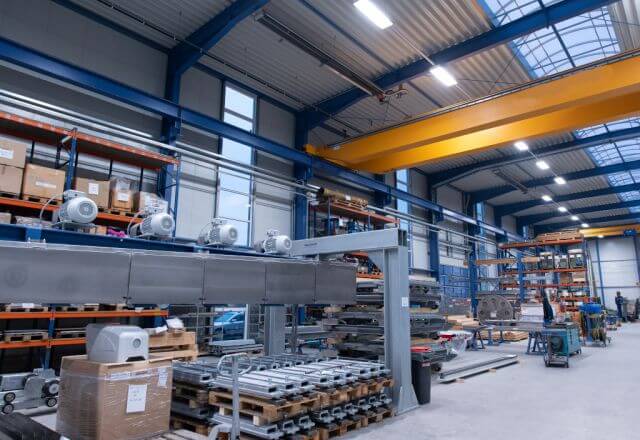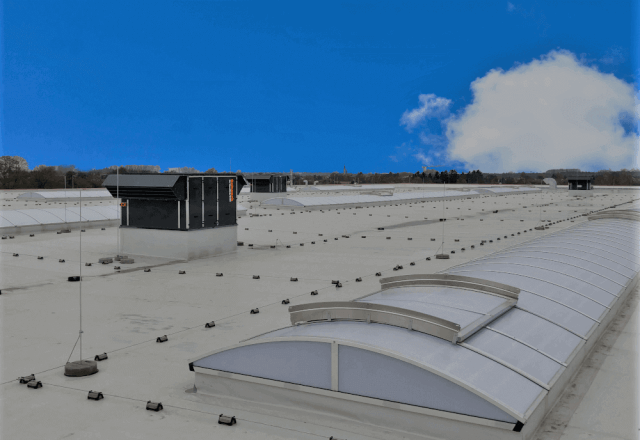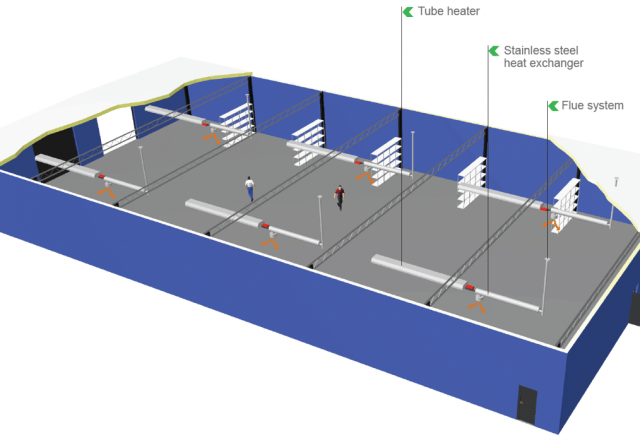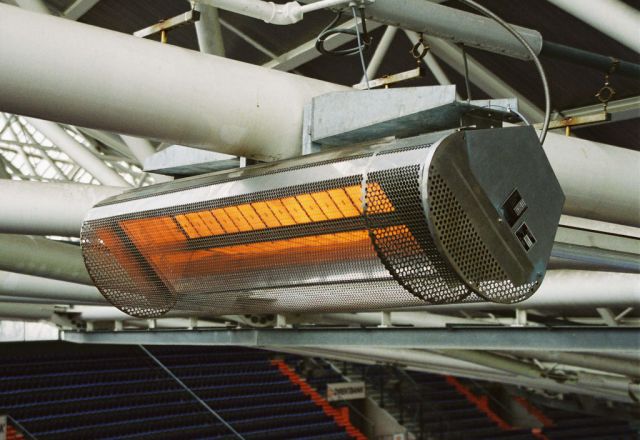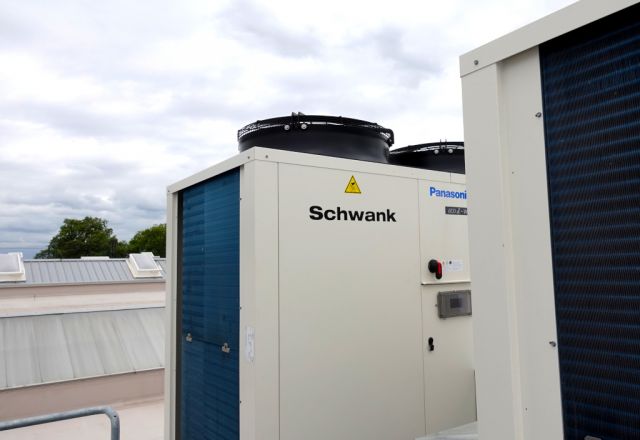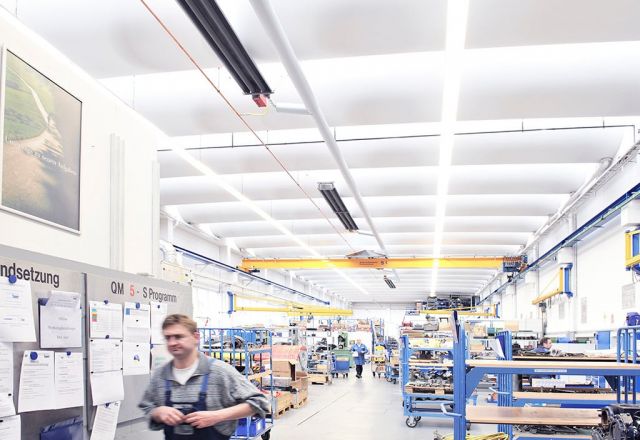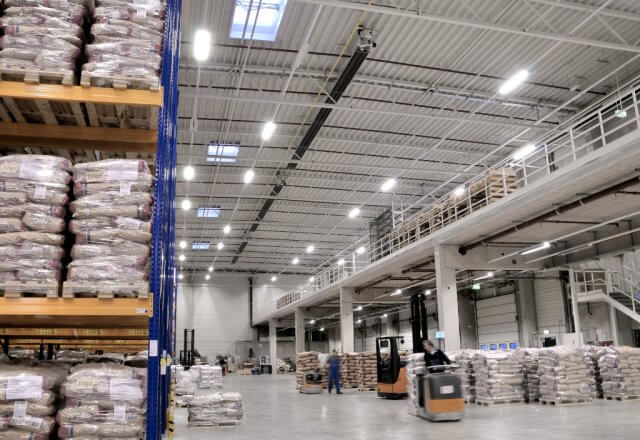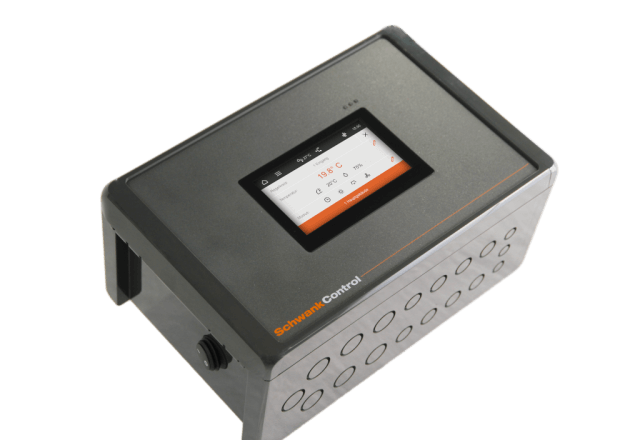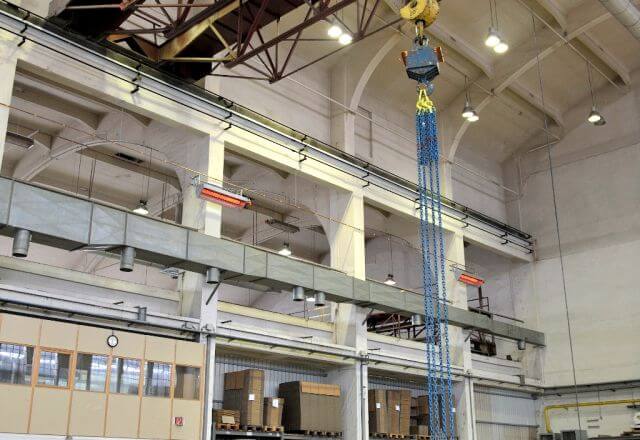What must an industrial heating system be able to do?
The heating system in an industrial building must be inexpensive to purchase, durable, fail-safe and easy to maintain. It must be controllable according to demand and provide comfortable heat. The latter is no simple undertaking with building heights of up to 20 metres if the energy consumption factor is to be considered at the same time. As you can see, these multi-dimensional requirements should at best complement each other, not exclude each other. For this to succeed, the structural characteristics of the production facility or warehouse, its utilisation profile and the expectations of the employees must be precisely recorded and compared with the strengths and weaknesses of possible methods for industrial heating.
CO₂ reduction is THE topic of our time. And we all know that industry has a not inconsiderable share in CO₂ emissions. Therefore, not only large and well-known industrial companies put environmental protection in the foreground for image reasons, but also small and medium-sized enterprises have to deal with this topic critically (Carbon Price Floor).
Economic efficiency
✅ Look for a manufacturer who can provide system-neutral advice and who has experience/references from your industry.
✅ Put quality in relation to the purchase price.
✅ Ensure high efficiency and low energy consumption of the industrial heating system.
✅ Have the heating requirements of your building calculated and follow a practice-oriented planning.
Environmental balance / Low energy consumption
✅ Take a close look at the annual efficiency rates according to the ErP Directive.
✅ Give preference to direct systems over indirect ones – this way you can avoid distribution losses.
✅ Use continuously modulating systems that adapt to the actual heat demand.
✅ Opt for low-NOx systems (nitrogen oxides).
✅ Use condensing systems.
✅ Use waste gas recovery for the industrial heating system
✅ Heat only when heat is needed.
✅ Use a system that avoids heat buffers under the building’s roof.
✅ Think about regular maintenance to keep the industrial heating efficient.
High flexibility
✅ Leave unused building areas unheated.
✅ Go for systems that can “move with you” or be expanded in the event of a change of use.
✅ Opt for direct heating systems that can move quickly with temperature fluctuations.
✅ Make sure that the industrial heating system is equipped with the up-to-date control system.
Adequate heat output
✅ For high buildings give preference to infrared systems over conventional systems
✅ Make sure that the industrial heating does not stir up air or dust.
✅ Keep the proportion of infrared heat higher than convection heat to be able to lower the ambient temperature while maintaining the same sensation.
✅ Go for direct heating systems that have fast response times.
Good service (= low maintenance costs)
✅ Place value on a dense service network of the manufacturer.
✅ Look for competence in development/manufacturing and service.
✅ Buy directly from the manufacturer of the industrial heating, not from the dealer.
✅ Make use of warranty extensions if necessary.
✅ Consider service contracts – in the best case “all-round carefree” packages.
Long runtimes
✅ Choose robust systems that have been used many times.
✅ Have regular maintenance carried out.
✅ Go for high quality industrial heating.
✅ Make full use of remote maintenance options.
✅ Go for modular solutions.

